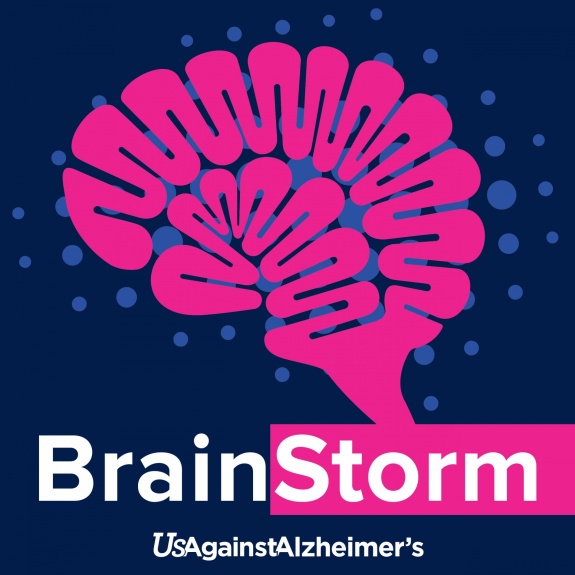BrainStorm
Subscribe on your favorite player
Listen on Apple Podcasts Listen on Spotify Listen on Stitcher Listen on Google PodcastsWomen, Menopause, and Alzheimer's Risk: Breakthrough Research on Brain Health with Dr. Rachel Buckley (part 1)

Women, Menopause, and Alzheimer's Risk: Breakthrough Research on Brain Health with Dr. Rachel Buckley (part 1)
Dr. Rachel Buckley of Mass General Hospital and Harvard Medical School discusses groundbreaking research revealing stark sex differences in Alzheimer's disease with BrainStorm host Meryl Comer. Her studies found that while men and women show similar levels of amyloid protein, women consistently display significantly higher levels of tau. This discovery has sparked a $50 million Welcome Leap Care grant aimed at cutting Alzheimer's lifetime risk among women by half.
The episode clarifies widespread confusion about hormone replacement therapy, explaining that the problematic Women's Health Initiative study used outdated hormone formulations on women over 65—far past the optimal window for intervention. Dr. Buckley emphasizes that current evidence supports HRT use within certain parameters and stresses the importance of women advocating for themselves when experiencing perimenopause symptoms like brain fog and sleep disturbances. The research highlights menopause as a critical period that may influence Alzheimer's risk decades later.
BrainStorm wants to hear from you! Send us a text.

About This Episode
Dr. Rachel Buckley of Mass General Hospital and Harvard Medical School discusses groundbreaking research revealing stark sex differences in Alzheimer's disease with BrainStorm host Meryl Comer. Her studies found that while men and women show similar levels of amyloid protein, women consistently display significantly higher levels of tau. This discovery has sparked a $50 million Welcome Leap Care grant aimed at cutting Alzheimer's lifetime risk among women by half.
The episode clarifies widespread confusion about hormone replacement therapy, explaining that the problematic Women's Health Initiative study used outdated hormone formulations on women over 65—far past the optimal window for intervention. Dr. Buckley emphasizes that current evidence supports HRT use within certain parameters and stresses the importance of women advocating for themselves when experiencing perimenopause symptoms like brain fog and sleep disturbances. The research highlights menopause as a critical period that may influence Alzheimer's risk decades later.